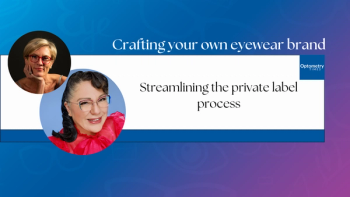
Reap the benefits of scleral lenses
Scleral lenses can be particularly helpful in certain subsets of patients who cannot wear contact lenses or who cannot achieve proper correction with glasses.
Key Points
Baltimore-Scleral lenses can be particularly helpful in certain subsets of patients who cannot wear contact lenses or who cannot achieve proper correction with glasses, said Elliott H. Myrowitz, OD, MPH, here at the annual Evidence-Based Care in Optometry Conference.
"There are things that we do sometimes that make a world of difference. These are what I call 'wow' moments, and they often involve the fitting of scleral lenses," began Dr. Myrowitz, of The Johns Hopkins Wilmer Eye Institute, Baltimore.
The advantages of scleral lenses include:
This all seems very exciting and very futuristic, but if we look at the history of contact lenses, we see that these large lenses have been here all along," Dr. Myrowitz noted.
In fact, the first reported contact lenses were made in 1888. They were 15 to 22 mm in size and made of glass. "Optically, these worked well, but because there was no permeability to them, hypoxia was a big problem," he said.
In the 1940s, hard polymethylmethacrylate lenses became available, but they also created significant corneal hypoxia. In 1983, gas permeable material became available and reduced the risk of hypoxia. The highly permeable materials used today make hypoxia even less of a problem.
"What we're concerned about today are mechanical issues, involving suction or mechanical trauma," Dr. Myrowitz said. "Lenses that are larger than the limbus are supported by the sclera, and thus comes the term 'scleral lens.'"
Newsletter
Want more insights like this? Subscribe to Optometry Times and get clinical pearls and practice tips delivered straight to your inbox.













































.png)


